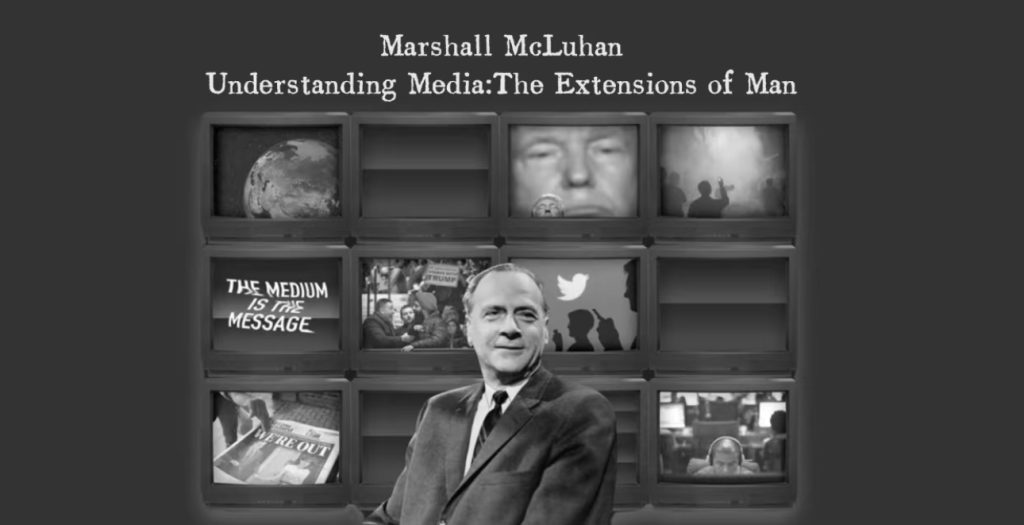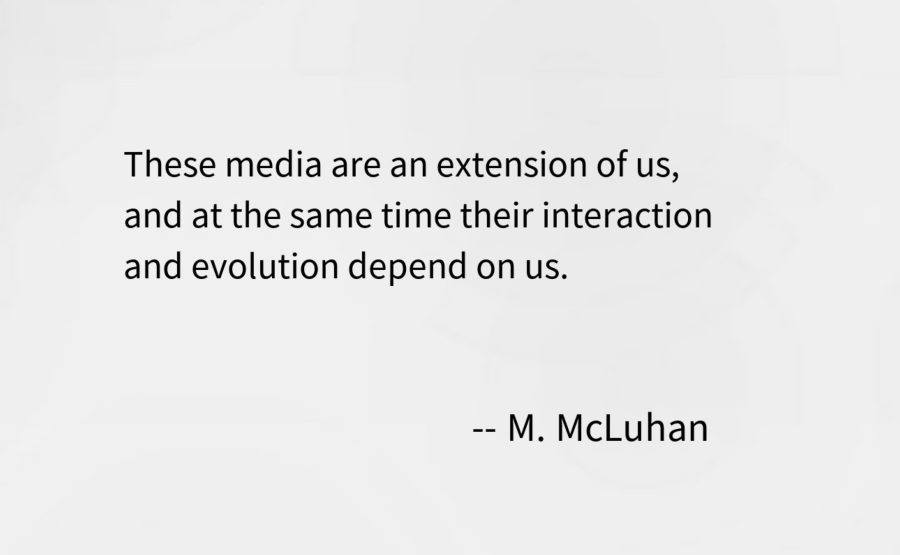
- Let’s briefly talk about McLuhan’s media theory first.The media mentioned by McLuhan is different from the media we usually understand. What I understand is that media is transmitted to me in the form of sound, pictures or words. What McLuhan believes is that “media is the extension of people”, and he believes that the impact of media on human society is more important than the specific content it transmits(McLuhan,1971).
- For example, if we are listening to a radio now, we must be concerned about what is being played on the radio, but I certainly will not think that the Internet podcast is undergoing great changes, such as traditional radio and Internet radio can let us hear information, but in the era of traditional radio, Maybe we sit in front of the radio and listen to it, with a fixed place and time limit. Now network radio gives us the right to choose content independently and listen to it anywhere. We no longer need to listen to the radio content we are interested in at a fixed point in time. We can listen to it before going to bed to help us sleep, and we can listen to it when we are stuck in traffic jams to pass the time.
- “Media is an extension of people” indicates that media is an extension of human tools and technology, and human beings use technology to create and disseminate information. McLuhan believes that every media has its own unique characteristics and influences, and people need to understand and apply the uniqueness of each media, so as to better play its advantages. Just as the wheel was created because of the burden of transportation on our bodies, we need to create wheels to replace our legs.
- Then media as an extension of people will bring us new opportunities.The extension of media brings us a wider range of information channels: In the previous era, the main channels for us to get information were newspapers, radio, etc., but with the development of the Internet, we can get more information through the Internet, even information from other countries, and receive more diversified forms, interesting videos or pictures combined, and more comprehensive, which makes our life and study more convenient. Resources are also more abundant.
- More convenient communication: we can get in touch with people all over the world by telephone, E-mail, video call and other means remotely, which not only shortens the distance but also saves time. During my stay abroad, I can get in touch with my family by video call, which improves the efficiency of communication.
- However, the extension of media technology also brings threats to the authenticity of information, resulting in the existence of false information. At this time, we need to improve our own identification, reduce the acceptance and dissemination of false information, and maintain our independent thinking and judgment ability. Moreover, the extension of the media has also brought new challenges to the management of politics and society. We can express and spread our opinions freely, which will lead to inappropriate remarks entering the public’s vision and misleading the public’s thinking. Sometimes, there will be Internet violence and other phenomena, which will create certain obstacles to the management of the government.
So in my opinion, the extension of media technology has brought us convenience, but while using media technology, we also need to deal with challenges, so as to make better use of the advantages brought by the extension of media technology.
Reference
McLuhan, M. (1971) Understanding media Marshall McLuhan. London: Sphere Books.


I really like the typography of your post, it’s concise and clear. You also give a very clear explanation – the human extension of the medium. But a few familiar examples might make your essay more interesting.